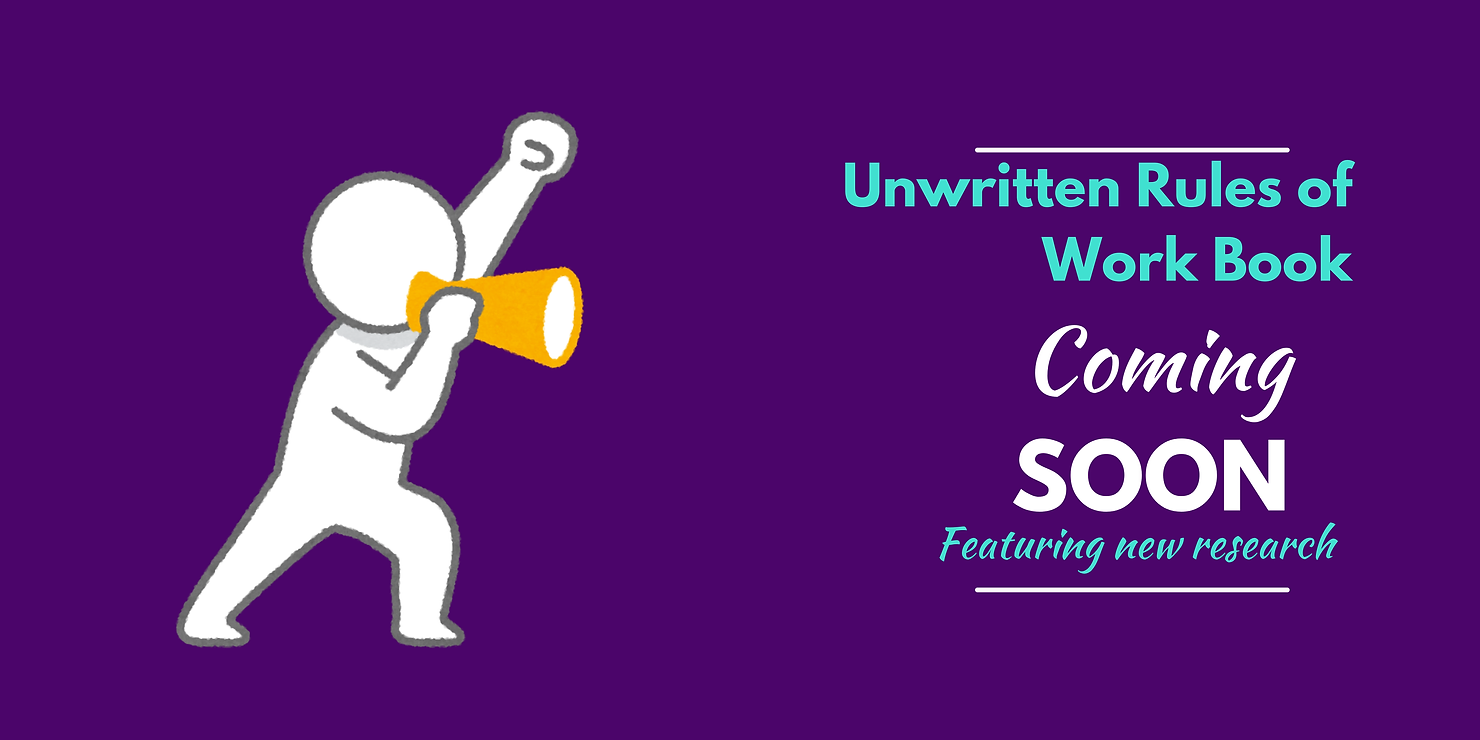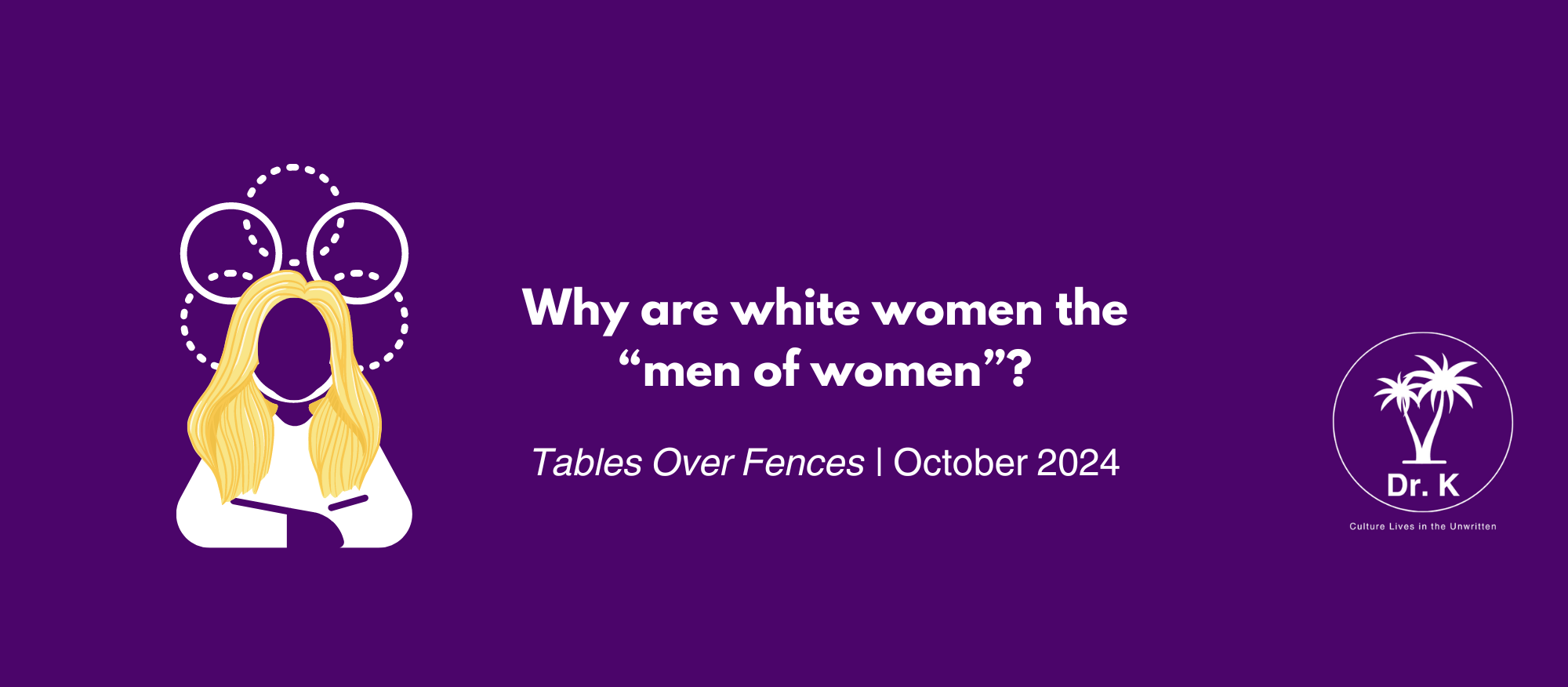How AI Can Help You Be a More Culturally-Competent Leader
2 years ago

“If you walked into an interview with that phone, I wouldn’t hire you,” a professor told me during my first year at university. “It’s an iPhone or nothing.”
I looked at what I thought was a smartphone…a pre-paid not iPhone that was part of my $50/month plan I picked up at Walmart.
iPhones are fricking expensive, I thought.
The professor’s point, while classist, was that we were students majoring in mass communications, and for our future jobs we would need to be able to write, record, and edit quickly and on the go. My little electronic buddy from Walmart that could barely load a Facebook status…was not going to cut it. I walked the mile to the local AT&T store (because I didn’t have a car either) and winced as I forked over a chunk of my savings for my first iPhone.
I remember recalling this conversation with my professor at a dinner with my parents and some of their friends over the holiday break.
“Well I would hire you if you DIDN’T show up with a smartphone,” one man said smugly. This response intrigued me too. It seemed there was a sense of morality to not participate in technology changes.
I have always been late on the technology train, which confuses people because I am a millennial (because aren’t we all born with screens stuck to us?). I was raised in a largely tech-free house. Both because we didn’t want to spend the money on it, but also because my parents were more traditional. They wanted my four younger brothers and me outside playing with lightsabers and digging holes (which oh…WE DID…and we also visited the ER a few times too…) and not playing video games and watching much TV.
I am absolutely thankful for the roughhousing and dirt-digging I did with my brothers during those years. I truly miss being LESS-engaged with my phone. But I also know that I was slower to learn how to write code in graduate school than my peers who had built their Myspace pages because I didn’t develop code-writing skills as early as they did. To this day, I have to make a more intentional effort to keep up with new training tools, such as virtual reality headsets, because I have never kept up with the gaming world. Chat GPT came out in November 2022, and my millennial self didn’t even try it until September 2023.
So now, 12 years later, the robots (generative AI) have arrived, and the I-O psychologist and team leader in me wants to know…what can I learn from AI? Last month, I wrote about the gender bias concerns I have. This month, I want to talk about how can AI make leaders’ and their employees’ lives better?
A fear I have, based on capitalistic trends, is that we will use AI just to increase our workloads. Wouldn’t it be a shame to invent something that makes our lives easier, and use it to burn ourselves out even more? Americans are already some of the most stressed people in the world, with 55% of Americans reporting feeling stress during much of the day, compared to the global average of 35%. Eighty-three percent of Americans say their job is a source of stress, with 25% reporting it’s the number one stressor in their lives. We have more technology than ever before, and still, we are so stressed at work!
Organizations should be concerned about this as well. It’s estimated that work-related stress costs the U.S. between $221 million and $187 billion every year, and $190 billion in annual healthcare costs. A common misconception I see is that employers often assume that time on the job means productive. We just had the solar eclipse a few weeks ago, and this post was floating around about lost productivity:

In my opinion, this is an ignorant estimate. More time at the grindstone doesn’t mean the same quality or quantity of work was produced. We know from decades of research that rest is required for people to perform good work and it boosts morale.
Here’s the other thing I notice…when I train on culturally-competent leadership (see my previous posts), leaders often wonder how they will find the time. I think the time can be found with AI.
As leaders, it’s easy to get caught up in the daily grind of meetings, emails, and deadlines. We’re so focused on checking boxes and putting out fires that we often neglect the most important part of our jobs – developing our people and fostering a healthy, inclusive culture. I predicted in my last post, that “soft skills” (i.e., people skills) will become more in demand as AI becomes more prominent, and I linked the research that is beginning to show that.
But here’s the thing folks…the robots are here to help us with that daily grind. Artificial Intelligence (AI) tools like ChatGPT can take care of tasks like writing meeting agendas, drafting emails, and even providing first cuts of project plans. Imagine how much time you could save by delegating these repetitive tasks to AI!
Now I know what some of you might be thinking…isn’t using AI “cheating”? Isn’t it taking the easy way out? As someone who was raised to value hard work and doing things the old-fashioned way, I get it. But we have to recognize that our value as leaders isn’t measured by how many hours we grind. It’s measured by the quality of our work and the impact we have on our teams.
If we can leverage AI to automate some of our mundane tasks, we can free up time and mental energy to focus on what really matters – building relationships, coaching our employees, and creating an environment where everyone feels valued and included. We can use that extra time to educate ourselves on how to navigate sensitive conversations, particularly with employees from marginalized communities. We can check in with our team members to understand their career goals and help them develop new skills. We can even use AI to help us craft more thoughtful and personalized feedback. We can be culturally-competent leaders.

Now, our teams still need us. (Don’t let that scarcity mindset creep in!) AI only knows what to do based on the data it is trained on. We still have the ethical obligation to make sure our AI is from a credible source and that it has been trained on diverse samples. AI will perpetrate the biases of the person/people who coded it, and the project manager/leader who implements the results will ultimately be who is held accountable for it. We must still use our ethics, judgement, and empathy to incorporate these machines.
And AI often has to be tweaked. For example, Google has recommended responses in Gmail for a while, some of which are notoriously snippy (something women are penalized for being). PowerPoint will also help you design your slides quickly with Designer, but the designs aren’t usually 508 compliant (inclusive of people with visual disabilities).
The key is to use AI as a tool to make space for the important work of leadership, not as an excuse to pile more on our plates (or our employees’ plates!). Here are a few specific ways you can start using AI to streamline your daily tasks and carve out time for building a strong, inclusive team:
- Use ChatGPT to draft agendas for your team meetings, so you can spend more time preparing to facilitate meaningful conversations.
- Use AI to transcribe meetings and assign tasks to team members. Then, spend that extra time you’ve saved checking in with each person initially to see how they’re doing and if they need any support.
- Leverage proofreading AI tools to help with writing and editing, especially if you have a disability that makes this challenging (I do…I use Grammarly’s free version and it helps a ton!). This will free up mental energy to focus on the substance of your communication and how it will land with different team members (and give you some peace of mind).
- Let AI write the first version of routine emails and project status updates, so you can focus on adding the personal touches that show your employees you care.
- Ask your team members what AI tools they’re already using to be more efficient, and encourage them to share their favorite tips and tricks.
- Set up recurring check-ins with each employee to discuss their wellbeing, career goals, and ideas for improving the team culture. Use an AI scheduling tool to make this a seamless process.
- Block off time on your calendar each week for learning about inclusive leadership practices. There are plenty of online courses and articles available, and AI can even recommend resources based on your specific goals.
Remember, our job as leaders is to enable our teams to do their best work, not to be the hardest working person in the room. By embracing AI and using it strategically, we can create more space for the essential human elements of leadership – empathy, communication, and connection.
So go forth and delegate (within reason) to the robots, my friends! Your team (and your sanity) will thank you.
More blogs
Emotional Intelligence at Work: Why Are World Leaders on the Epstein List?
“I don’t think I’ve ever even heard of a single person who thinks all leaders are evil and pursuing career […]
How to Deal with a Bully Boss: When Your Boss Feels Threatened By Your Success
You’re lying awake at 2 AM running through every interaction from the past month. Your boss has been distant. Cold, […]
Can a business ethically exist under capitalism?
How I navigate the contradictions of doing social class work within capitalism—and what I’m actually doing about it I’ve been […]
Book Retreat Hiatus
Book Retreat Hiatus Social Class 3 semanas ago When the universe is ready for you, it’ll knock you onto your […]
Why are white women the “men of women”?
Why are white women the “men of women”? Social Class 3 months ago Last month I talked about how economic […]
Is inequality really about social class, not race?
Is inequality really about social class, not race? Social Class 3 semanas ago Class has been at the center of […]
The Universal Language of Ignored Problems: What Your Ex-Boss and Ex-Boyfriend Have in Common
The Universal Language of Ignored Problems: What Your Ex-Boss and Ex-Boyfriend Have in Common Social Class 5 hours ago “Why […]
Tips for Navigating Polarization at Work – From Independence Day to Election Day
Tips for Navigating Polarization at Work – From Independence Day to Election Day Social Class 5 hours ago Growing up, […]
Unlearning Homophobia, Learning Inclusion: A Leader’s Journey Toward a More Equitable Workplace
Unlearning Homophobia, Learning Inclusion: A Leader’s Journey Toward a More Equitable Workplace Social Class 5 hours ago It’s Pride Month, […]








